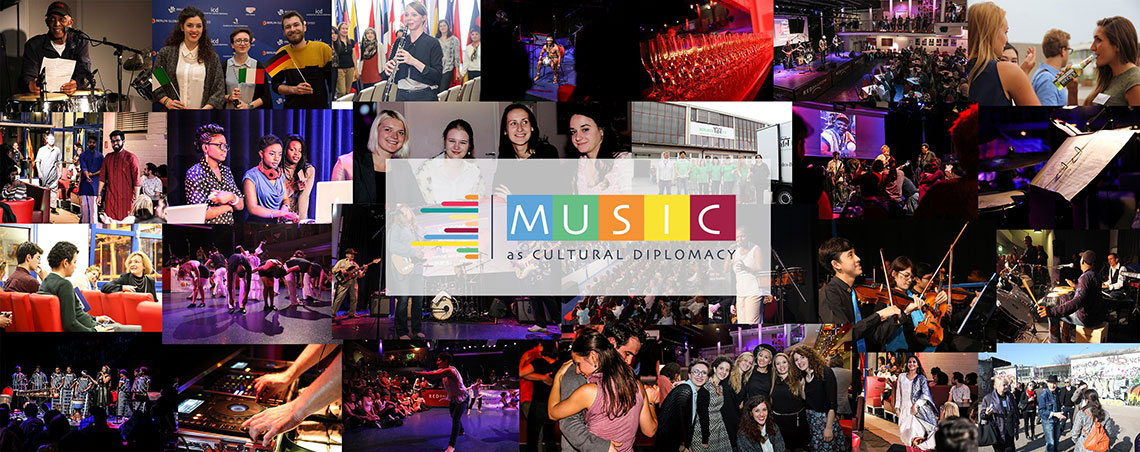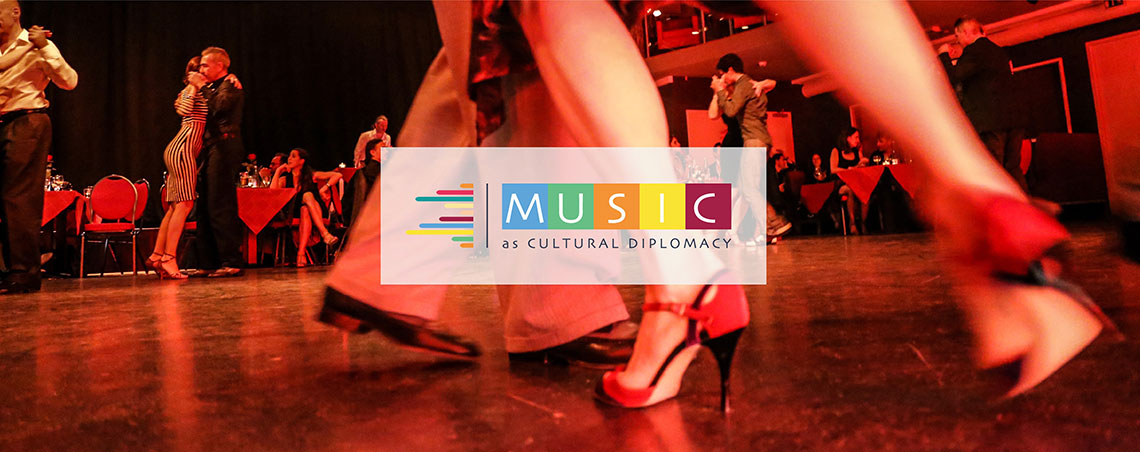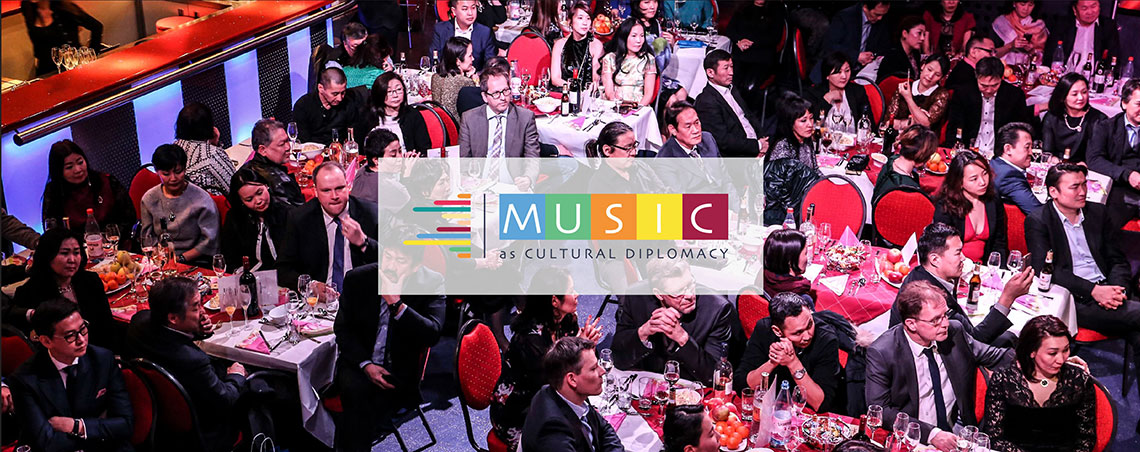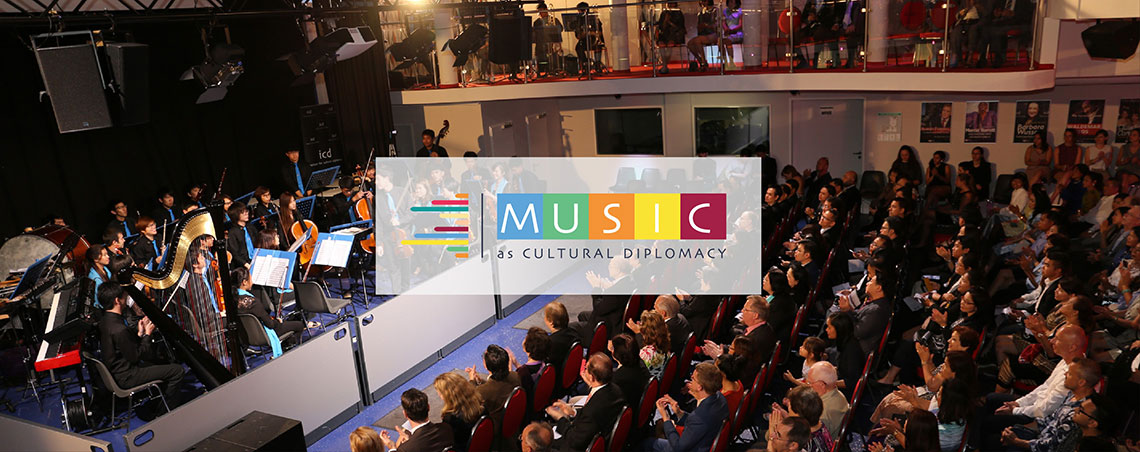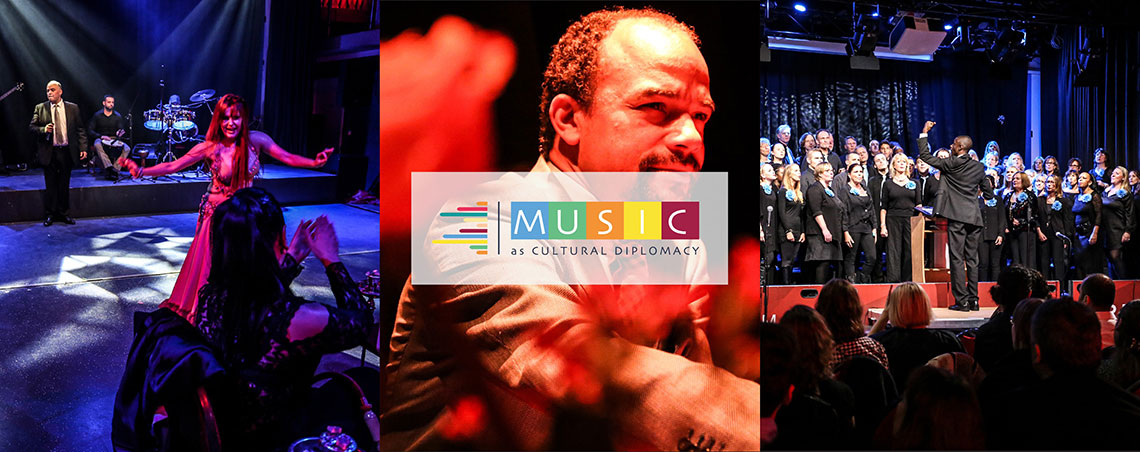Music as Cultural Diplomacy
About the Program

Introduction to the Program
Music is a powerful medium through which individuals, communities, and nations can express themselves. Whilst the role of music as a force for social cohesion can be seen to have emerged together with the earliest musical forms, the use of music to promote political, diplomatic, or societal objectives can be seen to have come to prominence during the Cold War.During this period American Jazz ambassadors, supported by the US State Department, played in a series of jazz concerts across the world, which were seen to reflect the US values of freedom and personal expression. More recently, philanthropic institutions such as the "West-Eastern Divan Orchestra" have emerged with the goal of strengthening bi-lateral relations between specific communities by providing a neutral common ground. Music has also been used, by both individuals and groups, to promote political or ideological messages.
Protest songs, in which the song lyrics may criticize a government's domestic policy, represent a clear example of this. At times, the messages conveyed by musicians are also reflections of general developments across society as a whole. When this is the case, songs can capture the entire mood of a nation and bring together people from diverse backgrounds. The Scorpion's song "Winds of Change" captured the hope felt by Germans, living in both the East and West, following the fall of the Berlin Wall. In South Africa, civil rights activist Miriam Makeba used her music to campaign across the world against the apartheid regime.
Marcia Barrett (Lead Singer of Boney M) has dedicated her song "You can't Fight while You Are Dancing” to the Field of Cultural Diplomacy.
Program Aims:
In recognition of the power of music as illustrated above, the Institute for Cultural Diplomacy has created the program "Music as Cultural Diplomacy". It seeks to pursue the following aims:- To explore the historical role of music as a form of cultural diplomacy during the Cold War and other important historical periods.
- To assess the use of music as a voice for minority communities and a tool to promote societal development.
- To analyze the use of music to build bridges in unstable regions.
- To promote the use of music for social cohesion and development.
Keynote Address and Performance by Jermaine Jackson, (Celebrated American Singer, Member of The Jackson 5)
Program Activity
The activity of the "Music as Cultural Diplomacy" program consists of the following three fields:Research and Analysis
The Music as Cultural Diplomacy program works to raise awareness of the use of music for peace building and societal transformation, and supports all academic research and analysis that shares these aims. Research is conducted by ICD staff, members of the ICD international network, ICD Advisory Board members, and other partners. This research is then published online and, where appropriate, presented at ICD conferences and events.Academic Lectures, Panel Discussions, and Seminars
The "Music as Cultural Diplomacy" program holds regular academic lectures, panel discussions, and conferences on themes related to the program goals. These events feature expert speakers from music, politics, diplomacy, civil society, and academia, ensuring an interdisciplinary analysis of the issues under discussion.Concerts and Musical Performances
The ICD hosts regular performances by renowned musicians who, through their work, have made a meaningful contribution to strengthening intercultural relations. Such musical events are open to the public free of charge, and will include a keynote speech by the artist(s) on their experiences as a musical ambassador. Recent performers include Marcia Barrett (Boney M), Cold War Jazz Ambassadors Reggie Moore and Gary "Detroit" Wiggins, and the ICD Cultural Ambassadors Band (see below).


